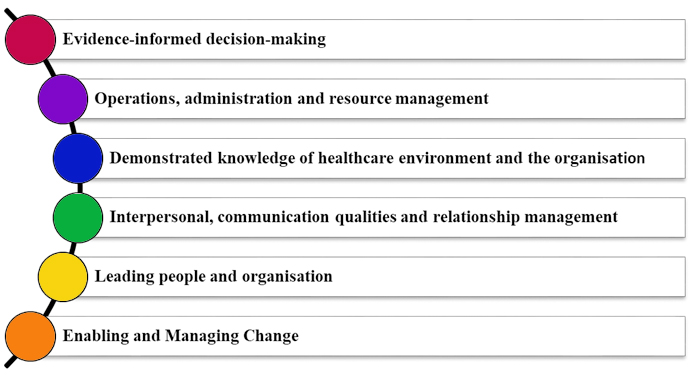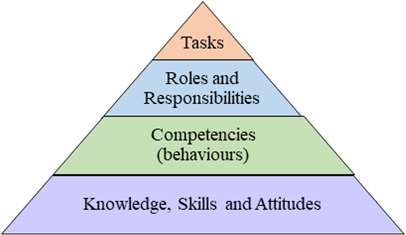CPHMVS Health Management Group The Guiding Framework
The Guiding Framework
- Future Students
- JCU Global Experience
- International Students
- Open Day
- How to apply
- Pathways to university
- Virtual Open Day
- Living on Campus
- Courses
- Publications
- Scholarships
- Parents and Partners
- JCU Heroes Programs
- Aboriginal and Torres Strait Islander in Marine Science
- Elite Athletes
- Defence
- Current Students
- New students
- JCU Orientation
- LearnJCU
- Placements
- CEE
- Unicare Centre and Unicampus Kids
- Graduation
- Off-Campus Students
- JCU Job Ready
- Safety and Wellbeing
- JCU Prizes
- Professional Experience Placement
- Employability Edge
- Art of Academic Writing
- Art of Academic Editing
- Careers and Employability
- Student Equity and Wellbeing
- Career Ready Plan
- Careers at JCU
- Partners and Community
- JCU-CSIRO Partnership
- Alumni
- About JCU
- Reputation and Experience
- Chancellery
- Governance
- Celebrating 50 Years
- Academy
- Indigenous Engagement
- Education Division
- Graduate Research School
- Research and Teaching
- Research Division
- Research and Innovation Services
- CASE
- College of Business, Law and Governance
- College of Healthcare Sciences
- College of Medicine and Dentistry
- College of Science and Engineering
- CPHMVS
- Anthropological Laboratory for Tropical Audiovisual Research (ALTAR)
- Anton Breinl Research Centre
- Agriculture Technology and Adoption Centre (AgTAC)
- Advanced Analytical Centre
- AMHHEC
- Aquaculture Solutions
- AusAsian Mental Health Research Group
- ARCSTA
- Area 61
- Lions Marine Research Trust
- Australian Tropical Herbarium
- Australian Quantum & Classical Transport Physics Group
- Boating and Diving
- Clinical Psychedelic Research Lab
- Centre for Tropical Biosecurity
- Centre for Tropical Bioinformatics and Molecular Biology
- CITBA
- CMT
- Centre for Disaster Solutions
- CSTFA
- Cyclone Testing Station
- The Centre for Disaster Studies
- Daintree Rainforest Observatory
- Fletcherview
- JCU Eduquarium
- JCU Turtle Health Research
- Language and Culture Research Centre
- MARF
- Orpheus
- TESS
- JCU Ideas Lab
- TARL
- eResearch
- Indigenous Education and Research Centre
- Estate
- Work Health and Safety
- Staff
- Discover Nature at JCU
- Cyber Security Hub
- Association of Australian University Secretaries
- Services and Resources Division
- Environmental Research Complex [ERC]
- Foundation for Australian Literary Studies
- Gender Equity Action and Research
- Give to JCU
- Indigenous Legal Needs Project
- Inherent Requirements
- IsoTropics Geochemistry Lab
- IT Services
- JCU Webinars
- JCU Events
- JCU Motorsports
- JCU Sport
- Library
- Mabo Decision: 30 years on
- Marine Geophysics Laboratory
- Office of the Vice Chancellor and President
- Outstanding Alumni
- Pharmacy Full Scope
- Planning for your future
- Policy
- PAHL
- Queensland Research Centre for Peripheral Vascular Disease
- Rapid Assessment Unit
- RDIM
- Researcher Development Portal
- Roderick Centre for Australian Literature and Creative Writing
- Contextual Science for Tropical Coastal Ecosystems
- State of the Tropics
- Strategic Procurement
- Student profiles
- SWIRLnet
- TREAD
- TropEco for Staff and Students
- TQ Maths Hub
- TUDLab
- VAVS Home
- WHOCC for Vector-borne & NTDs
- Media
- Copyright and Terms of Use
- Australian Institute of Tropical Health & Medicine
- Pay review
In order to excel in the management roles, managers are required to demonstrate a set of core management competencies. The level of competence that managers must demonstrate in order to deliver satisfactory performance vary between management levels and the nature of positions. The set of core management competencies enables competency-based education and serves as guiding principles for management development and education.
Many management competency frameworks have been developed around the world. This group has adopted the MCAP Framework originally developed and validated in the Australian context by A/Professor Zhanming Liang and colleagues, which has now been used in a number of Asia Pacific countries.
The MCAP framework details the six core competencies required by health service managers in order to excel in their positions with professionalism embedded across all of the competencies.
Competencies for Health Service Managers – the MCAP Framework1,2,3

Management Competency Development4,5
The design of the training, development and coaching will be based on the understanding of the pyramidal relationship between tasks, roles, competencies and knowledge/skills/attitudes. Management positions determine the knowledge, skills and attitudes required of managers. All training aims to enable managers to develop and apply the required competencies in their positions.

References
- Liang Z, Howard P, Leggat S & Bartram T. (2018). Development and Validation of Health Service Management Competencies. Journal of Health Organisation and Management, 32(2):157-175.
- Howard P, Liang Z, Leggat S &Karimi L. (2018). Validation of a management competency assessment tool for health service managers. Journal of Health Organisation and Management, 32(1):113-134.
- Liang Z. Blackstock F, Howard P et al. (2020). A health management competency framework for Australia. Australian Health Review, 2020, 44(6):958-964.
- Liang Z, Leggat S, Howard, P & Koh L. (2013). What makes a hospital manager competent at the middle and senior levels. Australian Health Review, 37(5):566-573.
- Liang Z, Blackstock F, Howard P et al. (2018). An evidence-based approach to understanding the competency development needs of the health service management workforce in Australia. BMC Health Services Research, 18 (976):1-12.